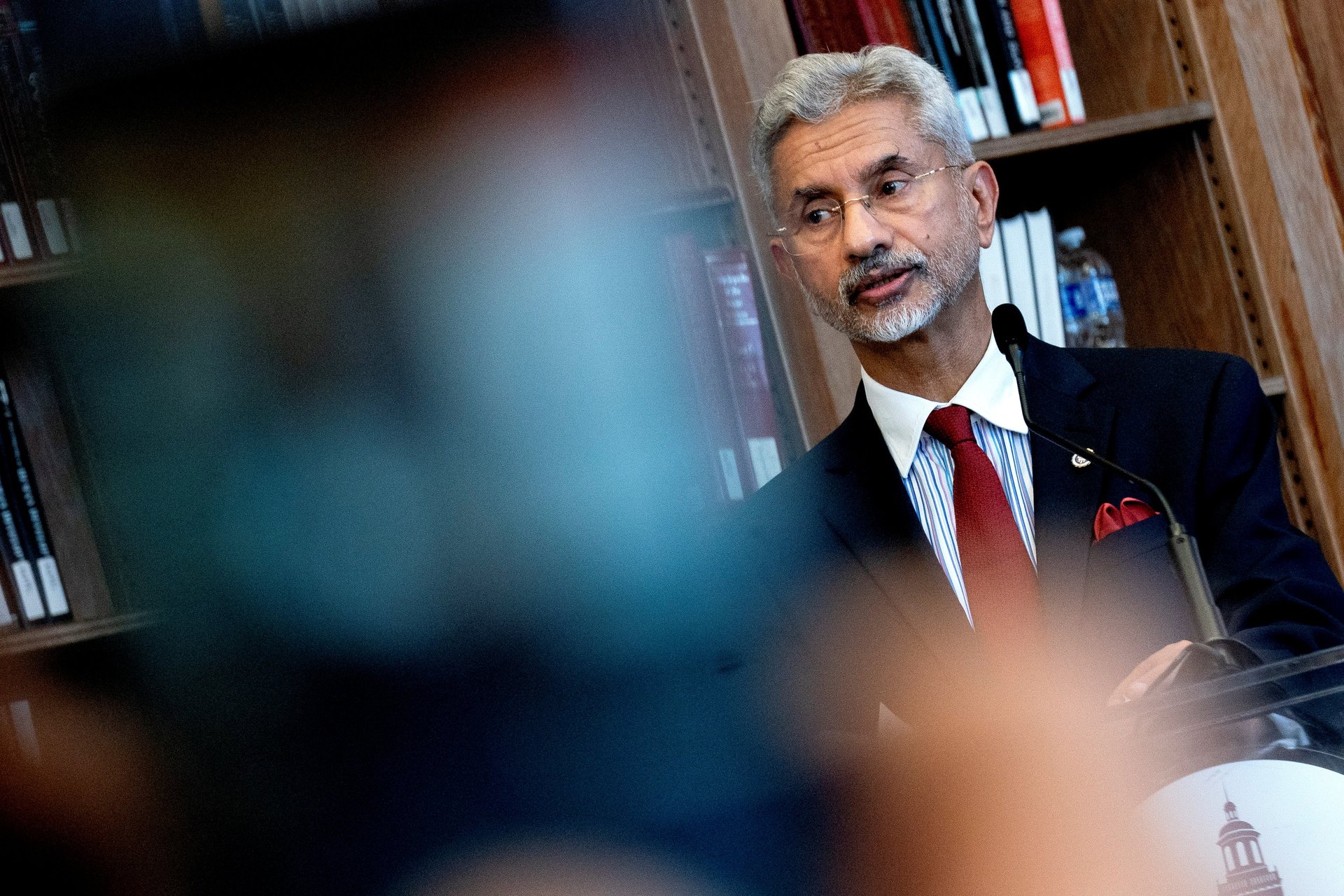🌍 India looks east
Good morning, Quartz readers!


Good morning, Quartz readers!
Here’s what you need to know
India and southeast Asia are looking to tighten their bond. Foreign ministers met in New Delhi to strengthen business and geopolitical ties and contain the impact of growing US-China tensions.
Ukraine was promised a path to the EU. The leaders of France, Germany, Italy, and Romania met Ukrainian president Volodymyr Zelenskyy in Kyiv and pledged to give more weapons, too.
Baidu is in talks to sell its stakes in iQIYI. The Chinese internet giant controls the majority of the streaming company, and Reuters said the sale would be worth $7 billion.
The UK, Switzerland, and Hungary’s central banks increased interest rates. The European Central Bank is expected to follow in July. The actions are to counter inflation, but the markets are none too happy.
Elon Musk met with Twitter employees. In his first Q&A with staff, he shared a vision to make the platform more like TikTok and reach a billion users. Meanwhile, layoffs of Tesla salaried workforce have started.
IKEA is leaving Russia. The furniture company is shutting 17 stores and four factories in the country, and laying off up to 15,000 employees.
What to watch for

The 146th Westminster Kennel Club Dog Show starts Saturday in Tarrytown, New York, and will bring thousands of pedigreed pooches and their owners together to compete for best in show, announced on June 22.
It’s not clear what effect, if any, the show has on the types of pets people want. The Labrador Retriever has been America’s most popular dog for 31 consecutive years, but has never won the show. Beyond criticizing dog shopping, adoption advocates argue Westminster promotes breed standards that encourage cruel practices, such as lopping off dogs’ ears or tails.
The $2 billion US dog and pet breeder market has been shrinking since 2016, with the adoption push and pandemic travel restrictions playing a role. But Westminster hopefuls continue to spend up to $100,000 a year on a chance at four-legged glory.
Leaded gasoline is still being used—just in the air
Leaded gasoline was banned almost 50 years ago from American roads. But most of the 170,000 small airplanes taking off and landing in general airports across the US continue to use the toxic fuel. This is especially dangerous for the 3 million children living in the areas surrounding those airports, since any amount of lead is known to damage their brain and nervous system.
Almost 19 million people in total live near enough to a general aviation airport to be exposed to lead. Quartz developed maps where you can check whether you live in areas with dangerous lead exposure.
But how is it still legal to use such poisonous fuel for airplanes, after it was banned for everything else? It’s a tale of bureaucracy, technical challenges, and oil companies fighting to protect their profits at the detriment of millions of children’s (and adults’) health.
Do you even ESG?
The greenwash police have their eyes set on Wall Street. Last week, US regulators targeted their biggest potential perpetrator to date, Goldman Sachs, for possibly overstating the environmental, social, and governance (ESG) credentials of some mutual funds.
But as lawmakers crack down on financial firms for greenwashing globally, it’s revealing a deeper problem in how ESG standards are being used. The next edition of the Weekend Brief will look at the future of ESG and the bureaucracies that complicate it.
✦ The Weekend Brief is only for Quartz’s members. Sign up for a membership today and take 40% off.
Quartz most popular
📍 Why the Fed’s last 75-point hike is a bad guide for the present…
Surprising discoveries
Meet the tiny frog that was genetically destined to crash-land each time it hops. Size matters for Brazil’s pumpkin toadlets.
Pakistanis aren’t happy with a government plea to stop drinking tea. Leaders of the country, which spends $600 million on tea imports each year, say the average three cups a day is too many.
Air pollution is more dangerous than cigarettes and alcohol… Breathing toxic gasses can shave off two years from a person’s average life expectancy.
…but alcohol wins wars! The Canada-Denmark “Whisky War” has ended, and the peace deal was sealed with (what else?!) a bottle of booze.
Sweden’s trash-talking bins have a big problem. Few people enjoy dirty talk in the street.
Our best wishes for a productive day. Send any news, comments, toadlet hats, and war-winning whisky to [email protected]. Reader support makes Quartz available to all—become a member. Today’s Daily Brief was brought to you by Tiffany Ap, Sofia Lotto Persio, Annalisa Merelli, and Morgan Haefner.